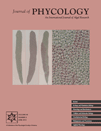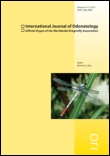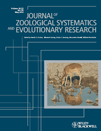
Mitochondrial DNA Part B-Resources
metrics 2024
Innovating the Study of Cellular Functions
Introduction
Mitochondrial DNA Part B-Resources, published by TAYLOR & FRANCIS LTD, is a prominent academic journal focusing on the vast and evolving field of genetics and molecular biology. As an open access resource, it is dedicated to providing valuable insights and comprehensive data on mitochondrial DNA, an area crucial for understanding cellular functions, genetic inheritance, and various diseases. Although relatively new, having commenced in 2016, the journal has gained recognition with its current Scopus rankings placing it in the lower quartiles for both Genetics and Molecular Biology. It serves as an essential platform for researchers, professionals, and students at the intersection of genetics and biotechnology, fostering collaboration and innovation. With a commitment to quality research and accessibility, Mitochondrial DNA Part B-Resources is poised to contribute significantly to the scientific community until at least 2024 and beyond.
Metrics 2024
 -
- 0.50
0.50 0.50
0.50 -
-Metrics History
Rank 2024
IF (Web Of Science)
JCI (Web Of Science)
Quartile History
Similar Journals

JOURNAL OF PHYCOLOGY
Pioneering Research in Aquatic EcosystemsJOURNAL OF PHYCOLOGY, published by Wiley, is a premier academic journal dedicated to the realms of Aquatic Science and Plant Science. Established in 1965, it has continuously contributed to the advancement of phycology through rigorous research and scholarly discussions. The journal holds an impressive reputation, classified as Q1 in both aquatic and plant sciences for 2023, affirming its position among the top-tier journals in these fields. With a Scopus ranking of 31 out of 247 in Aquatic Science and 75 out of 516 in Plant Science, it stands in the 87th and 85th percentiles respectively, highlighting its influence and impact. While it is not an open access journal, it offers a wealth of valuable insights and original research articles that are essential for researchers, professionals, and students alike. The JOURNAL OF PHYCOLOGY is a critical platform for the dissemination of knowledge on both fundamental and applied aspects of algae, making it indispensable for those who seek to deepen their understanding of this crucial area of biological science.

GENOME
Unraveling the Complexities of DNA and BeyondGENOME is a leading peer-reviewed journal published by Canadian Science Publishing, dedicated to advancing the field of genetics, biotechnology, and molecular biology. With a strong commitment to disseminating high-quality research, GENOME has earned a reputable spot in the academic community, boasting a Q2 classification in Biotechnology and Medicine (miscellaneous), and a Q3 rank in Genetics and Molecular Biology for 2023. The journal, identified by its ISSN 0831-2796 and E-ISSN 1480-3321, publishes innovative studies that span from 1987 to 2024, ensuring a rich historical context while addressing contemporary challenges in the field. Researchers and professionals are encouraged to contribute and engage with content that shapes the landscape of genetic research. Although the journal does not currently provide open access, it remains a vital resource for those committed to the exploration of genomic sciences, making it an essential read for both seasoned researchers and students alike.

KOREAN JOURNAL OF PLANT TAXONOMY
Pioneering insights into plant species diversity and ecology.Korean Journal of Plant Taxonomy, published by the Korean Society of Plant Taxonomists, serves as a pivotal platform for researchers and professionals in the fields of plant taxonomy and ecology. With an ISSN of 1225-8318 and a burgeoning E-ISSN of 2466-1546, this journal aims to disseminate high-quality research that contributes to our understanding of plant species diversity, classification, and evolution. Spanning the years from 2018 to 2024, the journal finds its niche within Q3 rankings in both Ecology, Evolution, Behavior and Systematics and Plant Science, reflecting its impactful contributions and relevance in the academic community. The journal's scope encompasses various studies aimed at advancing plant taxonomy in South Korea and globally. By fostering collaboration and sharing groundbreaking research, the Korean Journal of Plant Taxonomy plays a crucial role in shaping the discourse in plant sciences, making it an invaluable resource for students, researchers, and professionals alike, committed to advancing knowledge in this dynamic field.

GENETICS AND MOLECULAR BIOLOGY
Pioneering insights into the molecular world.GENETICS AND MOLECULAR BIOLOGY, published by the SOC BRASIL GENETICA, is a prominent journal dedicated to the advancement of knowledge in the fields of genetics and molecular biology. Since its inception in 1998, this Open Access journal has served as a vital platform for researchers, professionals, and students to disseminate their findings and engage with the latest innovations and discoveries. With an impact factor that reflects its growing influence, GENETICS AND MOLECULAR BIOLOGY ranks in the Q3 category for both genetics and molecular biology as of 2023, indicating its position within the academic community. The journal is indexed in Scopus, highlighting its commitment to maintaining rigorous peer-review standards while providing wide-reaching access to quality research. Operating out of Ribeirão Preto, Brazil, it fosters a collaborative environment for academic discourse and research development not only in Brazil but also globally. The journal encourages submissions that explore a wide range of topics in genetics and molecular biology, making it an essential resource for anyone involved in these dynamic fields.

INTERNATIONAL JOURNAL OF ODONATOLOGY
Fostering Knowledge in Insect Behavior and EcologyINTERNATIONAL JOURNAL OF ODONATOLOGY, published by Wachholtz Verlag GmbH, is a vital resource for researchers and professionals in the fields of Ecology, Evolution, Behavior, and Insect Science. Established in 1998, this journal provides a platform for the dissemination of innovative research pertaining to odonatology, encompassing the ecological and biological interactions of dragonflies and damselflies. With its focus on advancing knowledge within these scientific disciplines, the journal holds a commendable Q3 ranking in Ecology, Evolution, Behavior and Systematics and a Q2 ranking in Insect Science for 2023, reflecting its significance in academic circles. Although it operates without open access, its articles are accessible through institutional subscriptions, allowing for wide dissemination among scholars and practitioners. The journal's commitment to publishing high-quality, peer-reviewed research makes it an authoritative source of information that enriches the study of odonates and their broader ecological contexts. For inquiries, the journal's editorial team can be reached at C/O Fleet7, Fleethorn 7, Kiel 24103, Germany.

Arthropod Systematics & Phylogeny
Fostering innovation in the study of arthropod evolution.Arthropod Systematics & Phylogeny is a pivotal journal published by the SENCKENBERG NATURHISTORISCHE SAMMLUNGEN DRESDEN, MUSEUM TIERKUNDE in Germany, dedicated to advancing the understanding of arthropod systematics, phylogenetics, and evolutionary biology. With an ISSN of 1863-7221 and an E-ISSN of 1864-8312, this journal has established itself as a reputable source for high-quality research, evident by its ranking in the Q1 category for Insect Science and Q2 in Genetics. Covering a spectrum of subjects within the realms of agricultural and biological sciences, it caters to a diverse audience of researchers, professionals, and students eager to explore the intricate relationships and evolutionary histories of diverse arthropod taxa. The journal has been consistently publishing impactful studies since its inception in 2009, with ongoing contributions expected to bolster its presence in the academic community through 2024 and beyond. Although it currently does not offer open access options, its rich content serves as a valuable resource for those passionate about entomology and genetics, fostering collaboration and innovation in an important area of biological research.

ACTA ZOOLOGICA ACADEMIAE SCIENTIARUM HUNGARICAE
Bridging Theory and Practice in Ecology and EvolutionACTA ZOOLOGICA ACADEMIAE SCIENTIARUM HUNGARICAE, published by the Hungarian Natural History Museum, is a distinguished open access journal dedicated to advancing knowledge across the fields of Animal Science, Zoology, Ecology, Evolution, Behavior, and Systematics. Established in 2003 as an open access platform, this scholarly journal has actively contributed to the dissemination of critical research since 1996, positioning itself within the Q3 quartile in both its primary fields as of 2023. With its ISSN 1217-8837, ACTA ZOOLOGICA serves as a vital resource for researchers, professionals, and students aiming to explore and expand their understanding of animal biodiversity and ecology. Its publication features a variety of empirical studies, reviews, and critical commentaries that rigorously address contemporary issues in zoological sciences, underlining its commitment to fostering academic excellence and environmental sustainability. Researchers can access the journal’s extensive archives to deepen their inquiry into animal life, making it an essential addition to any academic library.

Conservation Genetics Resources
Preserving Nature's Blueprint for Future GenerationsConservation Genetics Resources, published by SPRINGER in Germany, is a key resource in the field of conservation science, focusing on the genetic aspects essential for biodiversity preservation and ecosystem management. With an ISSN of 1877-7252 and an E-ISSN of 1877-7260, this journal has established its presence as a vital platform for disseminating high-quality research that addresses the challenges of genetic conservation strategies. Notably, it has demonstrated a strong academic impact, currently holding a Q3 ranking in Ecology, Evolution, Behavior and Systematics and Q4 in Genetics for 2023, alongside Scopus ranks that position it as a notable contributor in its fields. This journal invites contributions that enhance the understanding of genetic diversity, population genetics, and conservation genomics, and it serves as an essential reference for researchers, professionals, and students committed to the preservation of our natural heritage. The access options are varied, catering to the needs of its diverse readership, and making it an indispensable addition to academic research spaces.

CONTRIBUTIONS TO ZOOLOGY
Elevating the Discourse in Zoological StudiesCONTRIBUTIONS TO ZOOLOGY, published by BRILL, is a premier scholarly journal dedicated to advancing the field of zoological sciences. With an ISSN of 1383-4517 and an E-ISSN of 1875-9866, this journal serves as a vital platform for researchers, professionals, and students seeking to share their findings and insights related to animal science, ecology, evolution, and systematics. Recognized for its high academic standards, it ranks in the top quartile (Q1) for Animal Science and Zoology, and Q2 for Ecology, Evolution, Behavior, and Systematics, reflecting its significance and influence in the scholarly community. The journal has been consistently published since 1994 and continues to contribute pivotal knowledge that informs and shapes contemporary zoological research. Researchers can access the journal through traditional subscription models, ensuring broad dissemination of its impactful articles and studies. Contributions to Zoology plays an essential role in fostering collaboration and discussion within the zoological community in the Netherlands and beyond.

JOURNAL OF ZOOLOGICAL SYSTEMATICS AND EVOLUTIONARY RESEARCH
Transforming Insights into Evolutionary UnderstandingThe Journal of Zoological Systematics and Evolutionary Research, published by Wiley-Hindawi, stands as a premier academic journal since its establishment, showcasing cutting-edge research in the fields of Animal Science, Zoology, and Ecology. With an impressive track record spanning from 1963 to the present, this journal has earned a Q1 classification in both Animal Science and Ecology, as well as recognized rankings in Genetics and Molecular Biology. Its impact is highlighted by its Scopus ranks, placing it in the top percentile for relevant categories, underscoring its vital role in advancing knowledge and understanding within these disciplines. Researchers, professionals, and students will find a wealth of high-quality, peer-reviewed articles that contribute to the evolutionary understanding of biodiversity and systematics. Though not an Open Access journal, it remains accessible to a wide audience committed to exploring the intricacies of zoology and evolutionary biology.